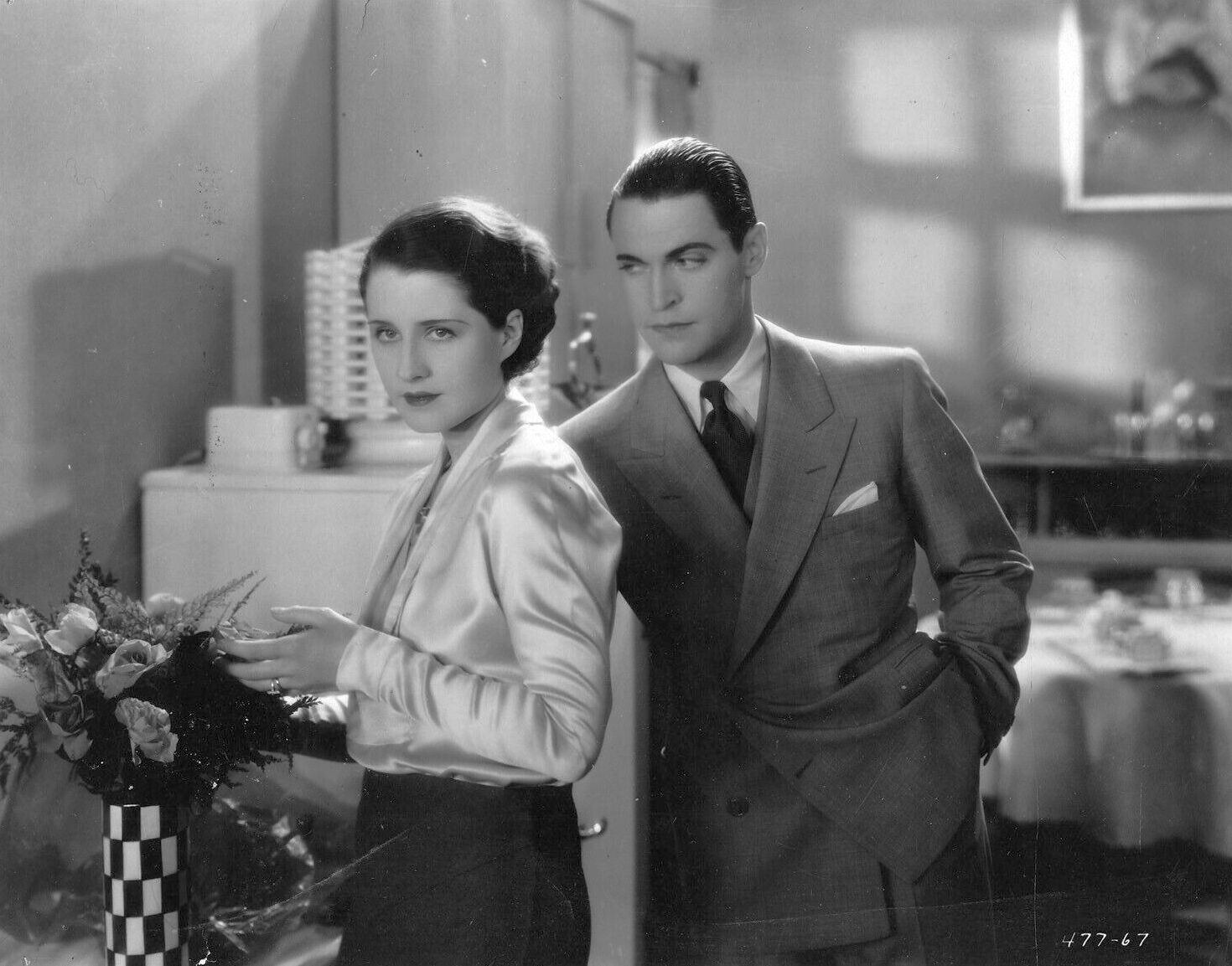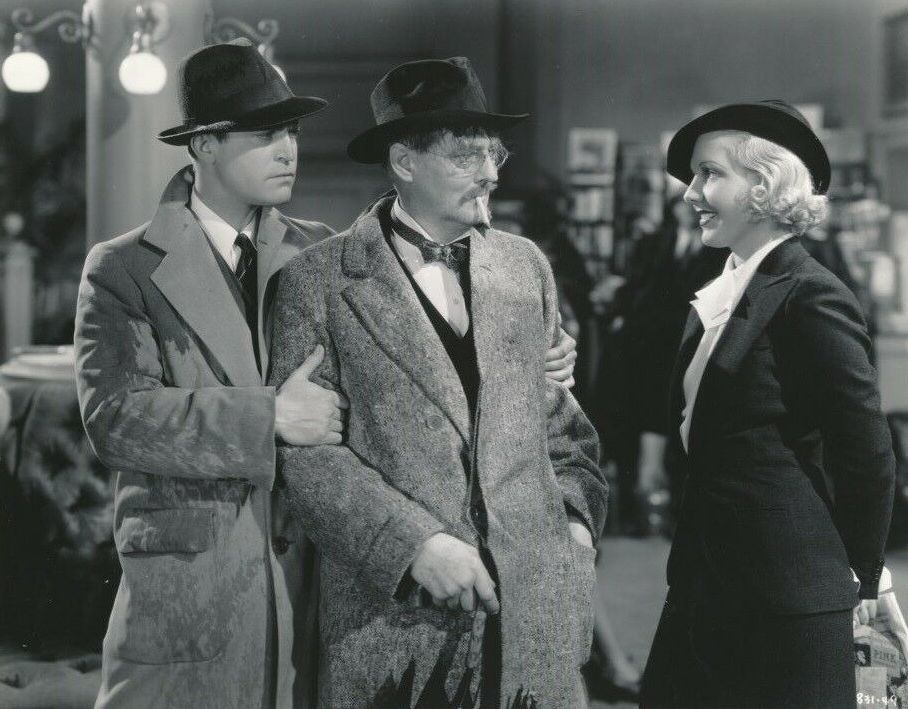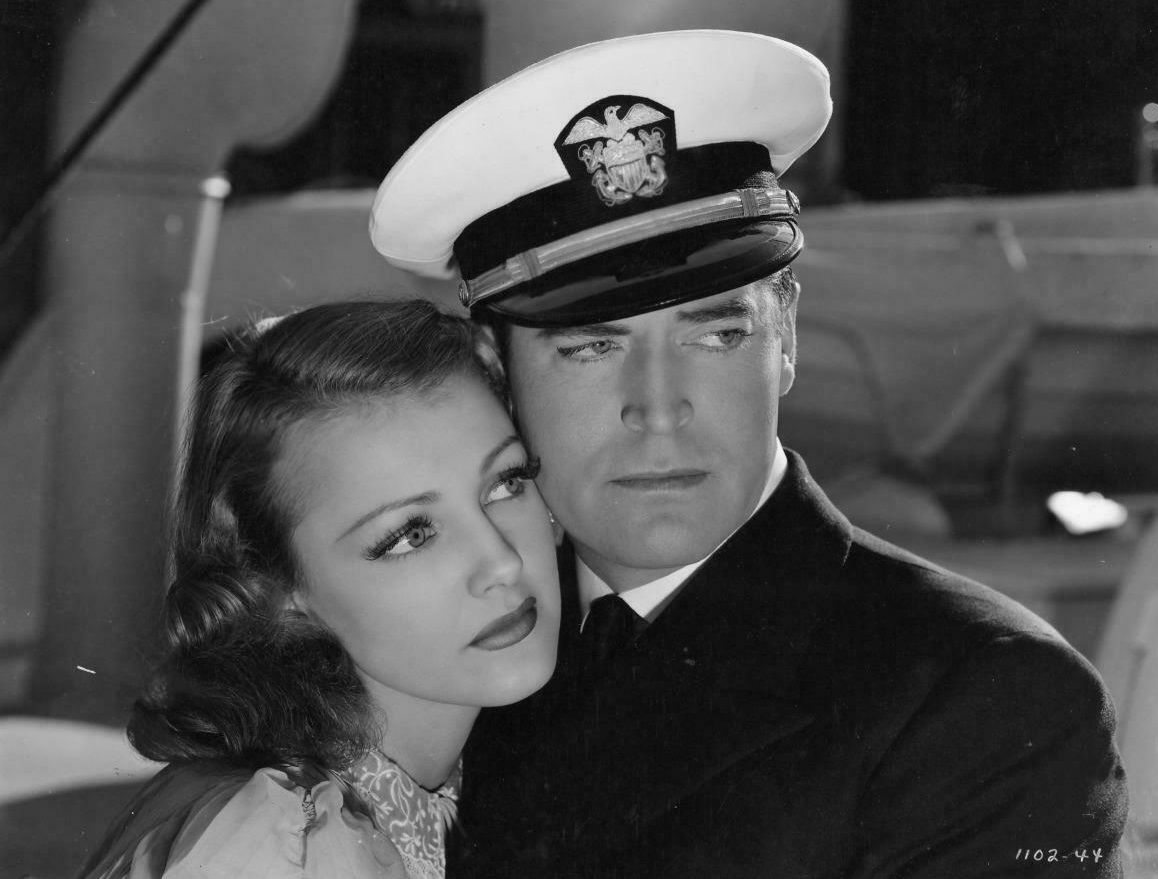Happy Birthday, Chester Morris!
Posted by Ivan G. Shreve, Jr. on Feb 16th 2020
Chester Morris starred in several Boston Blackie movies during the 1940s (Alias Boston Blackie, Boston Blackie and the Law, etc.). In a number of these films, Morris allowed his character Horatio “Boston Blackie” Black to be quite a skilled practitioner of prestidigitation. (That’s a fancy way of saying “magician.”) Chet had a lifelong love for magic, and he would often entertain USO audiences during WW2 with feats to astound their very eyes. Morris made the mistake of revealing a few tricks of the trade, however, in a 1947 Popular Mechanics article entitled “There’s Magic Up Your Sleeve.” That didn’t earn him many fans among the magician brotherhood. Still, the actor born John Chester Brooks Morris in NYC on this date in 1901 remained quite popular with movie audiences, particularly with the Boston Blackie franchise.
Show business was in the blood of Chester Morris’ family: his father was Broadway stage performer William Morris and his mother was stage comedienne Etta Hawkins. Young Chester dropped out of school at the age of 15 to try his luck among the footlights, appearing alongside future The Mayor of the Town star Lionel Barrymore in The Copperhead (1918). Around this same time, Morris also made his first feature film, An Amateur Orphan (1917). Chet would go on to a grace a few more stage productions, like Thunder (1919) and The Mountain Man (1921), then joined his parents, sister and two brothers on the vaudeville circuit with a popular comedy sketch entitled “The Horrors of Home.”
Chester Morris worked alongside his family for two years before returning to a solo stage acting career with the likes of The Home Towners (1926) and Yellow (1927). Spotted by a talent agent while appearing in the play Crime (1927), Morris was signed to a motion picture contract. With his very first talkie, Alibi (1929), he earned his first and only Best Actor Oscar nomination. Chet went on to appear in several of the period’s prestigious releases, among them The Divorcee (1930), The Big House (1930), The Miracle Man (1932), and Red-Headed Woman (1932).

By the mid-1930s, Chester Morris’ star had started to wane…although he was still a dependable leading man, his cinematic output tended to lean toward that of the B-movie variety. Morris was in some very good second features: he’s the star of Three Godfathers (1936), a remake of several films that used Peter Kyne’s novel as inspiration. (The 1948 version starring John Wayne is perhaps the best known version, seeing as it has become a Christmas favorite.) Chester also headlines the cast of two memorable B-thrillers in Five Came Back (1939) and Blind Alley (1939). Many of Morris’ features rarely rose above those of I Promise to Pay (1937), Law of the Underworld (1938), and Smashing the Rackets (1938), but he continued to be a reliable box office draw.
Columbia Pictures’ Boston Blackie franchise—which got underway in 1941 with Meet Boston Blackie—would prove to be the catalyst in reviving Chester Morris’ career. He made 14 Boston Blackie films between 1941 and 1949, portraying Jack Boyle’s reformed safecracker and jewel thief. The popularity of the movie series would result in a radio series, Boston Blackie, that premiered as a summer replacement for Amos ‘n’ Andy over NBC in June of 1944. Morris reprised his film role on the program, with Richard Lane joining him as Inspector Farraday, Blackie’s nemesis in the movies. Though the Morris Blackie lasted just the summer, Boston Blackie resurfaced in April of 1945 as a syndicated series from the Ziv production stables. This time Richard Kollmar would play Blackie, with Maurice Tarplin as Farraday and Lesley Woods as Mary Wesley, Blackie’s lady friend.

Boston Blackie was not Chester Morris’ only radio work. He appeared on many of the popular dramatic anthologies of the time, notably Family Theatre, The Lady Esther Screen Guild Theatre, The Lux Radio Theatre, The Silver Theatre, and Suspense. Morris was also a guest on many of the popular comedy-variety programs of the era, including Amos ‘n’ Andy, The Charlie McCarthy Show, Duffy’s Tavern, The Harold Lloyd Comedy Theatre, The Kraft Music Hall (Bing Crosby), and Maxwell House Coffee Time (George Burns & Gracie Allen). Rounding out Chester’s appearances on radio are credits for Calling All Cars, The Shell Chateau, The Texaco Star Theatre, and Welcome Travelers.
Although Chester Morris did some non-Boston Blackie work in films—titles like Secret Command (1944), Rough, Tough and Ready (1945), and Blind Spot (1947)—Boston Blackie’s Chinese Venture (1949), the last of the Blackie films, put him a state of semi-retirement where the silver screen was concerned. Morris turned his attention towards television, appearing on live anthology telecasts like Robert Montgomery Presents and Kraft Theatre, as well as making guest spots on popular programs such as Rawhide, Naked City, Ben Casey, and Route 66. (Morris also starred in a 1960 summer series, Diagnosis: Unknown.) In addition, Chet returned to the stage, with productions like Blue Denim (1958), Advise and Consent (1960), and The Subject Was Roses (1964) to his credit. Before his death in 1970 at the age of 69, Chester Morris went out on a high note with a nice supporting turn (as ‘Pop’ Weaver) in the 1970 drama The Great White Hope, which was released after his death.

We invite you to check out one of the funniest half-hours in the place “where the elite meet to eat” on Duffy Ain’t Here. In the May 11, 1949 Duffy’s Tavern broadcast, “Archie the Manager” (Ed Gardner) mistakes guest Morris for the notorious “Whistling Sam”! In addition – although these programs are not from the 1944 NBC summer series — Radio Spirits has on hand two Boston Blackie collections, Boston Blackie Delivers the Goods and Death Wish. These feature Dick Kollmar in the role that Chester Morris made famous in motion pictures. Happy birthday, Chester!

